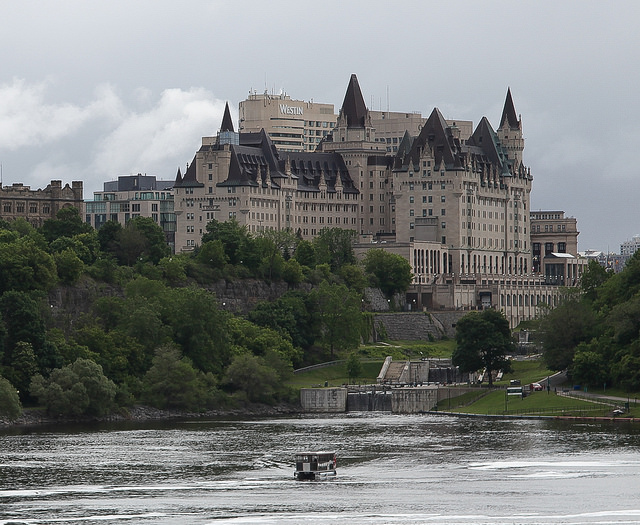Last month, U.S. President Donald Trump chose not to recertify the Iran nuclear deal on the grounds that its terms fail to accomplish their objective of stopping Iran’s illicit nuclear program. Like most areas of Trump policymaking, the decision got caught in the haze of controversy surrounding the president. Canadians must see through that haze.
Trump’s review of the Joint Comprehensive Plan of Action (JCPOA) is an obligation under American law. The Iran Nuclear Agreement Review Act of 2015 requires the president to certify to Congress every 90 days that Iran is implementing its commitments under the deal, and that the suspension of sanctions remains vital to American security interests.
As the deal is currently structured, Iran can obtain nuclear and intercontinental weapons simply by letting key restrictions expire under the sunset provisions. Inspectors cannot perform snap inspections of Iran’s nuclear facilities, nor do they have guaranteed access to military sites, which is where weapons and enrichment work has previously taken place. To conclude that this deal runs counter to the national security interests of the United States is hardly a brash ideological determination.
Decertifying does not dissolve the JCPOA, and does not necessitate reimposing original sanctions on Iran. Rather, it means that Congress can decide whether to strengthen the terms of the deal.
How does this affect Canada?
READ: AN ISRAELI-IRANIAN MUSICAL SET TO BRIDGE THE DIVIDE
Firstly, it is important to recall that Canada was not a party to the JCPOA. It is subsequently not bound by its stipulations nor directly affected by the decertification.
What Ottawa should take away from the decertification is that the Iranian regime remains a profound threat to international security. If Iran had ceased its war of aggression against its own citizens, neighbouring states and the West, I believe Trump would have recertified.
Consider Tehran’s recent behaviour. According to a report by the UN special rapporteur for human rights in Iran, Tehran continues performing executions for drug-related offences, punishing by flogging, stoning, amputating and binding, arresting human rights defenders, political activists and journalists, and discriminating against women and ethnic and religious minorities. The rapporteur also described a pervasive fear among Iranians abroad that Tehran will seriously harm family members still living in Iran.
Meanwhile, among the 470,000 files seized by U.S. navy SEALs at Osama bin Laden’s Abbottabad, Pakistan compound is a document described by two American intelligence officials as evidence of Iran’s support of Al Qaeda’s terrorist activities. What better way for the Islamic Republic to substantiate its status as the foremost state sponsor of terror than setting aside its venomous antipathy towards Sunnis in order to collaborate on the murder of innocent civilians around the world?
And German security officials have reportedly accused Iran of making over 30 attempts in 2016 to buy nuclear and missile technology in Germany, and actively working “to become a nuclear power that can mount nuclear weapons on rockets.”
Consequently, while the Canadian government has expressed interest in restoring relations and doing business with Iran, an appropriate balance is necessary. This is not a rehabilitated Iranian regime. This is an emboldened Tehran that continues to torture Canadians and finance Bashar Assad’s murderous destruction in Syria.
Ottawa would be well-served to adopt Bill S-219, which offers a pathway to re-establish diplomatic and economic ties with Iran while focusing on Iranian behaviours that successive Canadian governments have identified as priorities. The bill neither imposes new sanctions nor reimposes previous sanctions against Iran. It instead provides that remaining sanctions cannot be eased until the regime ceases its terrorist activities, human rights abuses and incitement to hatred.
Whatever one’s feelings about the Trump presidency, Canada should join the U.S. in developing a comprehensive strategy for countering Iranian violations. Giving Tehran a free pass is unthinkable.
